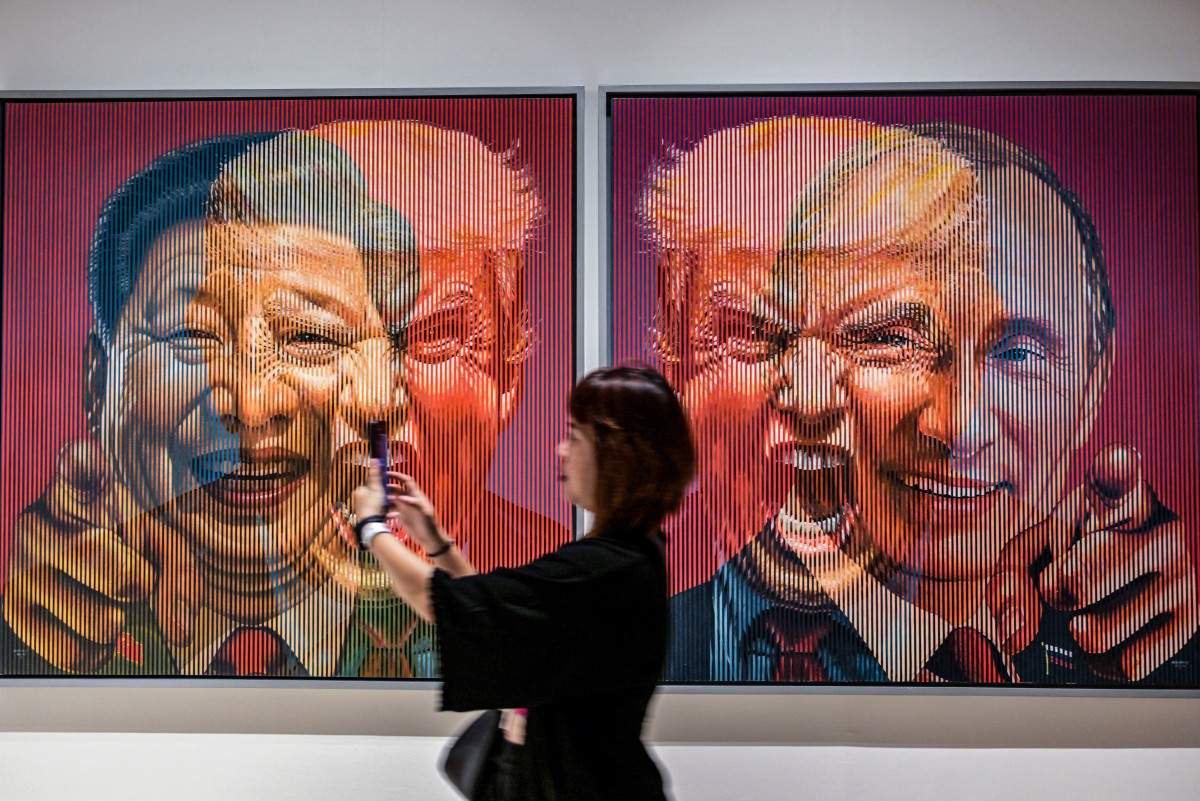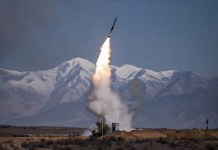Ukraine’s Volodymyr Zelensky urged US President Donald Trump to pressure Chinese leader Xi Jinping to cut his support for Russia when the two leaders meet later this week.
“I think this may be one of (Trump’s) strong moves, especially if, following this decisive sanctions step, China is ready to reduce imports” from Russia, Zelensky told journalists, including AFP, at a briefing released Tuesday.
Trump hit two major Russian oil companies with sanctions last week and has been urging buyers of Moscow’s vital energy exports — specifically China and India — to cut their purchases that Washington and Kyiv say fund Russia’s invasion.
Trump Throws China Assumptions In The Air
President Donald Trump has scrambled many long-held assumptions as he plans to meet his Chinese counterpart, Xi Jinping, on Thursday in South Korea, their first in-person encounter since 2019.
Trump, who boasts of his dealmaking prowess and has shown a fondness for strongmen, has hailed his relationship with Xi in ways that echo his warm words for Russian President Vladimir Putin, with whom he has tried and failed to achieve a breakthrough on the Ukraine war.
During his campaign, Trump, despite his otherwise harsh rhetoric on China, called Xi a “brilliant guy.”

“He runs 1.4 billion people with an iron fist — smart, brilliant, everything perfect. There’s nobody in Hollywood like this guy,” Trump said.
Trump pointed again to the power of his relationship with Xi last week as he voiced doubt China would invade Taiwan, the self-governing democratic island that it claims.
Trade has been at the top of Trump’s agenda as he seeks a deal between the world’s two largest economies.
The volatile US leader has ramped up and then lowered threatened tariffs on China, and both sides have signaled that a trade agreement is edging closer following weekend talks in Kuala Lumpur.
Ryan Hass, who served as former President Barack Obama’s top China advisor, said there was a disconnect between the deal-seeking Trump and a US bureaucracy still focused on countering Beijing.
He also doubted China had an interest in pursuing a deal with Trump to unlock some “golden era” of economic cooperation.
“China is interested in centering itself and pushing the United States to the periphery, not in having the United States and China sitting in the center together,” said Hass, a senior fellow at the Brookings Institution.
China may want a deal with Trump that, for them, is “potentially temporizing — playing for time — but I don’t see their interest as being advanced by unlocking some grand-bargain economic deal between the United States and China.”
Trump, similarly, in 2019 lauded what he called a historic trade deal with China, which was supposed to buy $200 billion in additional US exports.
The deal flopped, at least partly due to the Covid pandemic. By the end of his initial 2017-2021 term, Trump was lashing out in angry terms over the “Chinese virus,” which tainted his presidency.
Joe Biden took over and further ramped up pressure on China, including restricting sensitive technology imports, but also seeking deals on narrow issues of concern.
Yun Sun, a senior fellow at the Stimson Center, said China may not be seeking a warm relationship with Trump, but Beijing, like him, was transactional.
“The Chinese have an issue with his style, but they see Trump as someone they can work with,” she said.
“I think there’s a recognition in China that Trump has been very cooperative, or at least amicable, to a lot of the things that the previous Biden administration was not willing to make any concession on,” she said.
She pointed to the Trump administration’s reported refusal to allow Taiwanese President Lai Ching-te to visit New York during a trip to Latin America, a type of stopover once routine, even if it angered China.
Henrietta Levin, a former State Department official, said she could recite by heart how China and the United States would lay out their standard positions on Taiwan during meetings and then move on.
“Now I think there is an uncertainty about how President Trump will respond when President Xi inevitably presents these Taiwan demands to him,” said Levin, a senior fellow at the Center for Strategic and International Studies.
“Trump is comfortable, in a way that prior US presidents were not, connecting strategic issues to tactical economic questions and to the prospect of cooperation with China on different issues,” she said.
China has long opposed US arms sales to Taiwan and has sought for Trump to state explicitly that the United States opposes Taiwan independence, going beyond the current line that Washington merely does not support it.
For his part, Secretary of State Marco Rubio, a staunch backer of Taiwan while a senator, told reporters Saturday that the United States was not considering “walking away from Taiwan” in exchange for a trade deal with China.
© Agence France-Presse




